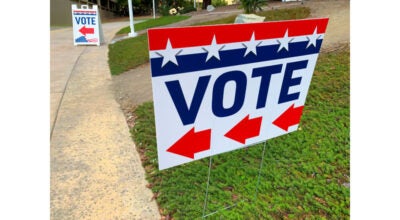COLUMN: Vote no?
Published 6:47 pm Wednesday, November 2, 2022
|
Getting your Trinity Audio player ready...
|
On Nov. 8, Southampton County voters will have the opportunity to vote on one of the most consequential ballot initiatives of their lifetimes: the right to vote itself.
Allow me to provide some background. For centuries, under law, Virginia has allowed a series of immoral and archaic laws to silence the voices of her citizens and deny equal access to quality public education. In 1896, the Supreme Court’s decision in Plessy v. Ferguson upheld the doctrine of separate but equal and, shortly thereafter, Virginia’s Constitution in 1902 was amended to mandate poll taxes, literacy tests and racially segregated schools. In 1950, immediately preceding the Massive Resistance movement which opposed the integration of our public schools, Virginia’s general assembly codified the method of school board selection still used in Southampton County today, the three-member selection commission. The law, currently code section 22.1-35, calls for three county residents, each of whom must be registered voters, to be appointed by the circuit court judge. Each would serve four-year terms on the selection commission and a simple majority of two members would decide who serves on our school board.
Given the time and context in which that law was written, it’s not difficult to imagine the agenda its patrons had in mind.
In 1992, shortly after L. Douglas Wilder’s successful and historic campaign to become the country’s first elected Black governor, Virginia became the last state to allow for the direct public election of local school boards. While many Virginia localities moved swiftly to embrace their newly expanded right to vote, Southampton refused to do so and remains one of only three counties in the state that continue to employ this outdated school board member selection method.
On Nov. 8, voters in Southampton County will have the opportunity to abandon this relic of the past and decide for themselves who will select the members of our school board. A vote of yes will indicate you prefer the right to elect your own school board. A vote of no means you want to continue giving a simple majority of two people the power to make the decision for you. And by the way, the circuit court judge does not have to be a resident of the county in which he appoints members to the school board selection commission. In fact, the judge who currently appoints our commission neither lives, votes nor pays taxes in Southampton; he lives in Suffolk.
Yet while it would seem obvious that most citizens would prefer the right to vote for their own school board, as evidenced in no small part by the nearly two thousand Southampton County voters who signed petitions to put this issue on next week’s ballot, there are some in our community who want to keep you from having that right. According to their signs, they are asking you to vote no to an elected school board to keep politics out of school.
Think about that for a minute.
You are being asked to use your right to vote, to keep yourself from having the right to vote, to keep politics out of schools. They are using politics in the name of avoiding politics. Whoever is behind this movement to suppress voting rights, they are asking you to decide that you shouldn’t have a say in local public education. Much like those who lobbied for the voter suppression and segregationist bills in the early 1900’s, one needn’t think too hard in order to imagine who is likely behind this most recent voter suppression campaign. It’s likely not the children who go to school every day in unsafe learning environments, or the parents who wake up every morning wondering if their child’s school bus is going to show up on time. It’s not the teachers who have been pleading for years for a safer working environment and competitive wages. It’s certainly not those who have been campaigning for transparency and accountability from our current school board. And it’s obviously not the thousands of registered county voters who signed petitions to get an elected school board referendum on the ballot. In fact, there are only a small number of people who would directly benefit from maintaining the status quo, and by asking you to vote no, they are essentially asking you to remain silent.
In my opinion, the choice on Election Day is an easy one. If you vote no, you are choosing to give complete control of our schools to a small collection of individuals who are not accountable to you for their decisions. By voting no, you are agreeing that you shouldn’t have a voice in the education of your children. By voting no, you are telling them they know better than you. Will I vote no? To them I say, no. Vote yes for an elected school board on Nov. 8.
Tony Clark can be reached at tonyclark20252@gmail.com.





